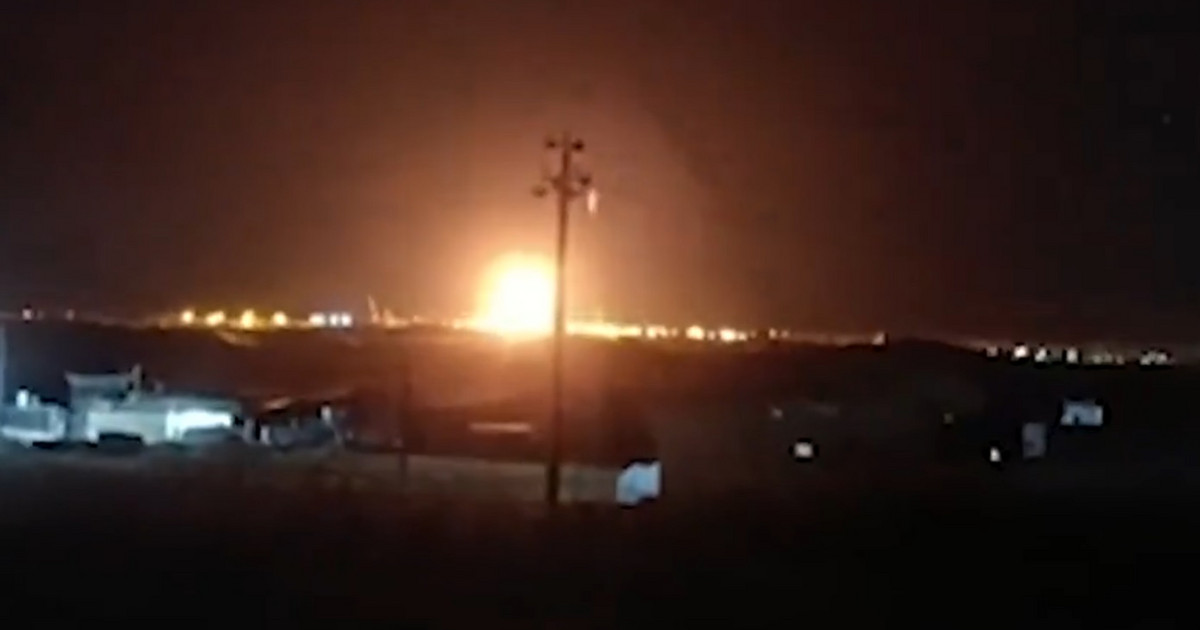The West is promising massive sanctions on Moscow in response to Russia’s invasion of Ukraine.
French President Emmanuel Macron said on Thursday that European sanctions would target Russia’s military, economy and energy.
He added that Germany’s decision this week to suspend certification of the Nord Stream 2 pipeline built by Russia’s Gazprom shows that the vast oil and gas sector is not off limits.
But any action that affects Russia’s energy interests will highlight the role played by some of the West’s biggest players, who have generated billions of dollars for the Russian state and are among the country’s top foreign investors.
See how ExxonMobil, BP and Shell are helping to keep Russia’s oil-dependent economy afloat.
ExxonMobil
The American oil giant has more than 1,000 employees in Russia and has been in the country for over 25 years.
Its subsidiary, Exxon Neftegas Limited, has a 30% stake in Sakhalin-1 – a vast oil and natural gas project located on the island of Sakhalin in the Russian Far East.
It has operated the project since 1995 on behalf of a consortium that includes Japanese and Indian partners, as well as two affiliates of Russian oil company Rosneft.
ENL employs over 700 Russian nationals at five major production sites. ExxonMobil also has offices in Moscow and St. Petersburg.
Since its inception, Sakhalin-1 has generated more than $18.3 billion in payments to the Russian federal and regional governments.
But Russia is not as important to ExxonMobil as it used to be.
ExxonMobil previously partnered with Rosneft to carry out exploration and research activities in Russia, but withdrew from these joint ventures following sanctions imposed by the United States and Europe following Russia’s annexation of Crimea in 2014.
The company valued its Russian assets at $4 billion in its annual financial report released on Thursday. But that represented less than 2% of its fossil fuel assets.
The word “Russia” was not mentioned in its recent earnings call with analysts.
ExxonMobil did not immediately respond to a request for comment.
BP
On its website, BP proclaims itself “one of the biggest foreign investors in Russia”.
This investment is largely through a strategic partnership with Rosneft, in which it holds a 19.75% stake.
The British company appoints two directors to Rosneft’s board — BP CEO Bernard Looney and former CEO Bob Dudley.
Through three joint ventures with Rosneft, BP holds a 20% stake in the Taas-Yuryakh oil project in eastern Siberia.
BP completed the deal to acquire that stake in 2015, and the project’s output was expected to reach 100,000 barrels a day last year.
BP also owns 49% of Yermak Neftegaz — formed in 2016 — which is conducting onshore exploration in a combined area of about 260,000 square kilometers in the West Siberian and Yenisey-Khatanga basins.
The third joint venture covers the Kharampur project, in which BP has a 49% stake. Kharampur is a mature oil field, but BP and Rosneft are planning to develop the project to pump gas.
BP says there is potential to “double the field’s overall production”.
BP did not immediately respond to a request for comment.
The UK-based company’s biggest involvement in Russia is Sakhalin-2, which it describes as one of the world’s largest integrated oil and gas projects.
Shell has a 27.5% stake in the venture, which is controlled by Gazprom. Other investors include Mitsui and Mitsubishi of Japan.
The project includes three offshore platforms, an onshore processing facility, 300 kilometers of offshore pipelines and 1,600 kilometers of onshore pipelines, an oil export terminal and a liquefied natural gas (LNG) plant.
Shell says Sakhalin-2 supplies about 4% of the current world market for LNG.
Japan, South Korea and China are the main customers for oil and LNG exports.
A Shell spokesman said it was monitoring the situation closely but declined to comment on the company’s investments in Russia.
— Chris Liakos and Chris Isidore contributed reporting.
Source: CNN Brasil
I am Sophia william, author of World Stock Market. I have a degree in journalism from the University of Missouri and I have worked as a reporter for several news websites. I have a passion for writing and informing people about the latest news and events happening in the world. I strive to be accurate and unbiased in my reporting, and I hope to provide readers with valuable information that they can use to make informed decisions.






